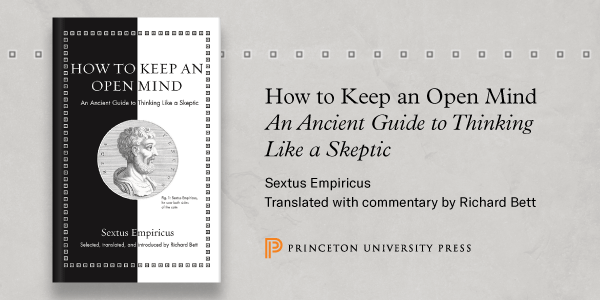The APA’s New Strategic Plan
The American Philosophical Association (APA) has released its new strategic plan, which describes the aims and priorities of the organization.

[Takako Saito, “Sound Chess”]
The plan identifies six goals, listed below along with their associated objectives:
- Create Opportunities for Connection
- Continuously improve APA divisional meetings to make them as valuable and accessible as possible for as many philosophers as possible.
- Create opportunities outside the divisional meetings for philosophers to connect, network, share scholarship, and learn from one another.
- Foster Scholarly Excellence
- Foster philosophical diversity across the venues in which the APA publishes and promotes scholarship.
- Encourage and support the full spectrum of philosophical scholarship, including traditional as well as emerging and historically marginalized content areas, interdisciplinary work, and newer approaches to disseminating scholarship, such as digital humanities work and publicly engaged philosophy.
- Foster Teaching Excellence
- Provide venues for discussion of matters related to teaching methods and the dissemination of teaching expertise of all kinds.
- Provide venues for disseminating excellent teaching materials regarding diverse traditions and peoples.
- Welcome, Support, and Represent the Full Spectrum of Philosophers
- Increase membership and participation in the APA of philosophers and philosophy-degree-holders working outside academia and in non-faculty positions in academia, and support philosophers considering and pursuing a broad array of career paths.
- Support unemployed and underemployed philosophy faculty.
- Make the discipline and the association more inclusive, welcoming, and accessible.
- Diversify APA membership, leadership, and meeting participation.
- Increase support for philosophy students and early career philosophers
- Promote and Advocate for Philosophy and Philosophers
- Expand strategies and resources to defend philosophy programs (and their faculty) facing cuts or closure, and to proactively avert potential threats.
- Improve supports for philosophers facing threats to their professional rights.
- Increase awareness of the value of philosophy among various audiences and develop strategies to make the work of philosophers more visible and accessible.
- In partnership with other scholarly societies and organizations, continue and expand efforts to advocate for government support of philosophy, the humanities, and higher education.
- Ensure Organizational Stability and Sustainability
- Secure financial resources to support the expansion of programs and services in support of the APA’s mission.
- Ensure that the APA has the leadership and staff necessary to pursue its mission effectively and efficiently.
The plan’s creation was led by a group chaired by APA executive director Amy Ferrer consisting of Cheshire Calhoun (chair of the board of officers from 2014–2020), Dominic McIver Lopes (chair of the board of officers), Richard Bett (vice chair of the board of officers), Alexandra Bradner (chair of the Committee on the Teaching of Philosophy, 2014–2018), Jeffrey Dunn (secretary-treasurer of the Eastern Division), Jennifer Nagel (president of the Central Division, 2018–2019), and Mike Morris (APA deputy director).
You can read the entire strategic plan here.
Discussion welcome, including ideas for advancing the goals and objectives set out in the plan.



Excellent plans
Awesome plan and a step in the right direction by an able, visionary and reflective team. Plan has potential to translate to creation of big-time polymaths/lateral thinkers needed to open space for provision of solutions needed for addressing stubborn problems in the 21st Century and beyond and in every particular while embracing multidisciplinarity and even other key players currently confined to the periphery of the field by the current unexhaustive definition and demarcation of the territory/field of philosophy and who may be admissible as philosophers.
The single biggest thing that the APA could do to stabilize the discipline would be to advocate for K-12 curricula. We should be increasing the demand for philosophy, and for those trained in philosophy.
Philosophy for Children (P4C), high school courses on critical thinking and logic, and inclusion in Common Core and Regents’ outcomes could and should include both substantive philosophical content, logic and critical thinking, and analytic philosophical writing.
It’s a missed opportunity and so long as other disciplines are included but we are not, we will continue to fight rearguard actions.
I’ve been commenting extensively on the APA blog on and off for a couple of years. I like the site and those who manage it, but have been puzzled by the persistent lack of engagement with the articles being published.
I’m not surprised that I’m not engaged with as I’m not an academic and am thus an outsider to the community. I am however curious and somewhat troubled that APA members almost never engage with each other on the blog. What does that say about their relationship with philosophy, each other, and even their own articles? I really don’t know.
I expect time constraints to be offered as an explanation, which is understandable. But then why have a blog in the first place? What is the point of writing if one has no idea who, if anybody, is reading or how they are experiencing an article? Again, I really don’t know.
All that said, I’m doing about the same thing as the article contributors on the APA blog. I would love to engage and encourage that when ever I can, but given that’s not happening I’ve learned to mostly cheerfully accept that I’m commenting to accommodate my addiction to thinking and typing, and I seem to be willing to keep typing even if no one other than the editors is reading what I write.
Philosophy: A conversation with oneself?